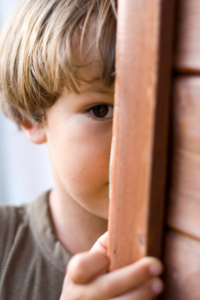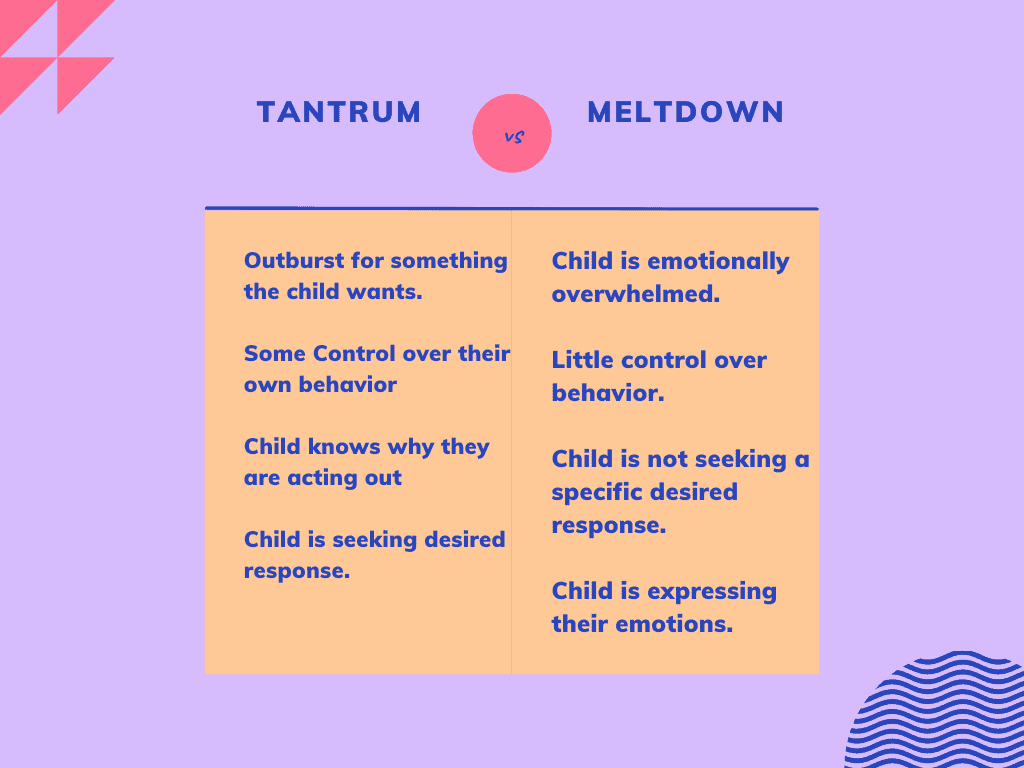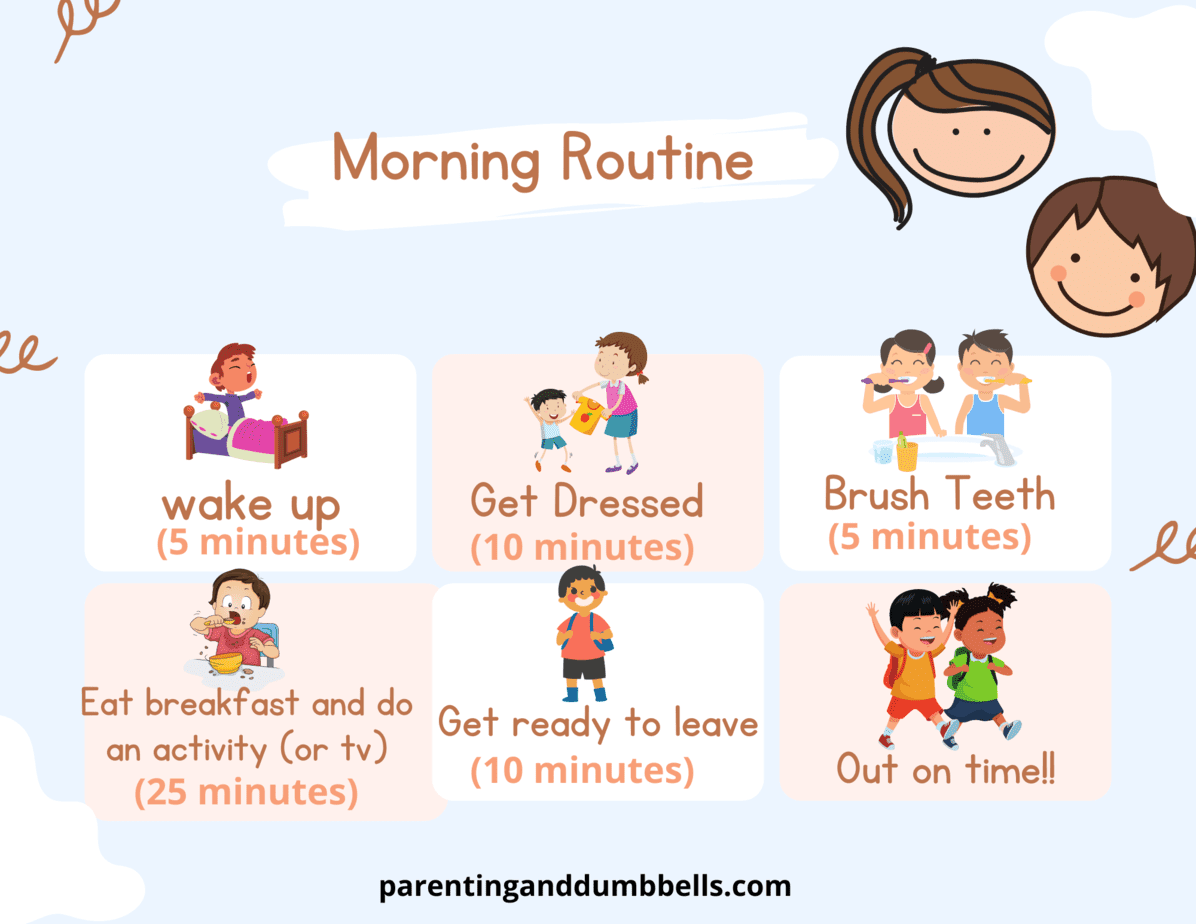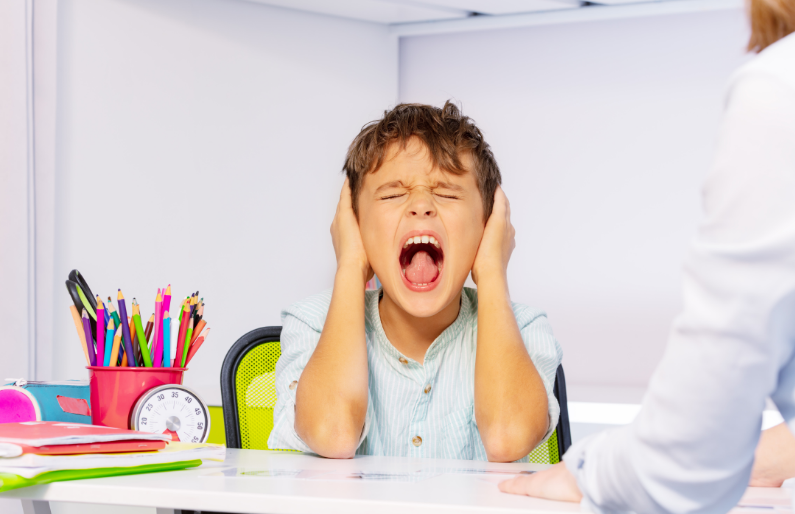I ran out the door, late to pick up my son.
I enjoy picking my son up from school. Watching this little person walk out ready to tell me about his day and spend time together makes me feel complete. But not all days are like this.
One particular day I got there early. I saw him walk out of school. He seemed normal.He got in the car. I smiled and said hello. I started to ask him about his day when without warning….
He started BAWLING.
SCREAMING.
KICKING.
I thought he was possessed! I had NO IDEA what was going on.
After the second time of this happening, I quickly learned and began to understand what was going on.
He wasn’t acting up or having a tantrum.
He was having a legitimate AFTER SCHOOL MELTDOWN or what counselor and parenting educator Andrea Loewen coined the “After School Restraint Collapse”.
What is the After School Restraint Collapse?
The definition is in the term itself, it’s a collapse, emotionally. Your child has been holding so many emotions inside during the school day, good or bad, and restraining themselves from expressing these emotions that when they get to a safe space it just explodes outward all at once.
Why does the after school meltdown/restraint collapse happen?
This emotional meltdown is typically seen more among younger, sensitive, shy kids or kids who have academic trouble at school but can and does affect all types of kids.

Young kids, often those beginning their school journey (Kindergarten and First Grade), are still learning how to navigate school environments.
While they might be enjoying school, they might still be “emotionally careful”. They might not always speak out.
They might stick to following all the rules and keep their emotions inside because the fear of expressing them might get them unwanted attention from their peers or teachers or because they are unsure of what to do in certain situations.
These are all normal feelings kids go through in school, but for younger kids, they aren’t exactly use to these feelings.
So when they spend 6-8 hours containing their emotions, whether it be excitement, anger, happiness, etc and also spend that time following rules and structured routines on top of dealing with any socialization issues/situations that might come up, it builds up inside of them.
Add any external stressors like:
- Lack of sleep,
- Hunger
- General lethargy from the day….
AND…
Then take the fact that young kids are still learning to regulate their emotions, and haven’t mastered that, and well…
you have a recipe for one hell of a ticking time bomb when mommy or daddy come for pick up!
And you won’t know what to do if you don’t keep reading!
Does this meltdown mean my child is having problems at school?
No.
While social and academic difficulties in school can certainly aggravate and trigger a meltdown, they are not the only culprit and at times, not part of the equation.
Some kids are naturally quite, and more reserved. They might contain their energy in school a little more than the next kid and when you add other factors (hunger, tiredness, a bad moment in school, constantly following a schedule, routine etc) it can all boil over the minute they get into their “safe space”.
It is very important though to always stay up to date with your child’s teacher on not only their academic development, but social development as well.
Here are some great questions to ask your child’s teacher!
What does the after school meltdown/restraint collapse look like?
Some of the signs to look out for when your child is about to have an after school meltdown are:
- They get very quiet just before. The “calm before the storm.”
- They aren’t answering any questions or giving you one word/vague answers.
- They aren’t looking at you.
- They just LOOK emotionally exhausted.
What does it actually look like when it begins?
- Crying
- Screaming
- Kicking/Physical Aggression
- Uncontrollable emotions – nothing you say calms them down
- They can’t give you an exact reason why they are acting this way
It is important to understand these meltdowns or restraint collapses are NOT tantrums and should not be treated as such.
A tantrum is more of a controlled behavior for a desired response while a meltdown is more of a reaction and not under a child’s complete control.

What to do DURING an after school meltdown?
Since there is difference between a TANTRUM and a MELTDOWN. The responses must be different.
During your child’s after school meltdown/restraint collapse you want to focus on a few things:
- Let them cry.
- Let them express their emotions as loud and as much as they want.
- Don’t get upset, or take it personally, it is not about you.
- Let them know it is ok to feel what they are feeling. Tell them softly that they can cry as much as they want, and when they are ready, you are there for a hug.
- Don’t ask them what is wrong, don’t ask questions, just let them be.
- When they are settling down, attempt to go near them and give them a hug. Continue telling them it is ok to feel upset.
- After the meltdown is over, continue to tell them it is ok and hug them.
- Explain to them that what they felt was real, and it was ok but that maybe you can both find ways to let it out in more productive ways.
I told my son he can tell me he wants to go for a walk, or run around outside. If he wants to cry and let it out he can do that too.
ALWAYS MAKE YOUR CHILD FEEL SAFE EXPRESSING THEIR EMOTIONS AROUND YOU AND HELP THEM FIND BETTER OUTLETS TO DO SO.
I have done this, after I understood what the after school restraint collapse was, and it has worked every time.
Validating a child’s feeling does wonders for them feeling a strong connection with you and helping them regulate their own emotions.
How to prevent future after school meltdowns?
1.Have a good morning routine
Just like adults need a good morning to start off their day, so do kids. It sets the tone for their day. Make sure they have enough time to get ready so they don’t start the day rushed and have a good breakfast to be energized for the day.

Check out more tips to make your school mornings with kids easier.
2. Read their emotions and give them time.
I can tell when my son is tired from school.
He will get into the car and just kind of have a blank stare or just say he doesn’t want to talk. Read and understand these cues and give them that time to relax. Don’t always ask questions, just let them be and enjoy the ride home. Follow their pace and build on what they tell you and want to tell you.
Me and my son have a deal.
He doesn’t always want to talk about school, and I respect that.
But I also want some insight into his day. So the deal was one day he will tell me everything I want to know about his school day and the other day he will just give me a thumbs up or thumbs down if school was “good” or “not so good” that day.
Thankfully, it’s always thumbs up. And yes, I actually trust he’s telling me the truth because I can tell by his behavior.
3. Offer them a snack and water to replenish their energy levels.
Many times kids go without hydrating or eating properly in school and this can add to any negative feeling they might be experiencing.
5. Avoid having constant after school activities.
Do you constantly want to go do stuff after working a long day? It’s good to have your kids involved, but don’t jam pack their schedule on all 5 school days. Let them go home and relax and decompress from the school day.
6.Give them time when they get home to unwind, sit, run outside for a few minutes or play for a bit.
Again, think about how you feel getting home from work. It is the same for them, they are just getting home from school.
7. Have a calm demeanor yourself.
Kids feed off your own actions, feelings, and behavior.
8. Talk to them and instill confidence in who they are and their voice
Remember, you are your child’s beacon. Your child will have a much easier time navigating uncertain social circumstances in school when they have confidence and respect in themselves. Here are some ways to instill confidence and respect in your kids.
In conclusion, after school meltdowns are normal. The key is to understand why they are happening and help your child feel safe expressing their feelings to you when it does happen. After we understand what is happening, we want to help our kids build a stronger inner confidence so they don’t feel they have to hold everything inside all the time for fear of expressing themselves.

